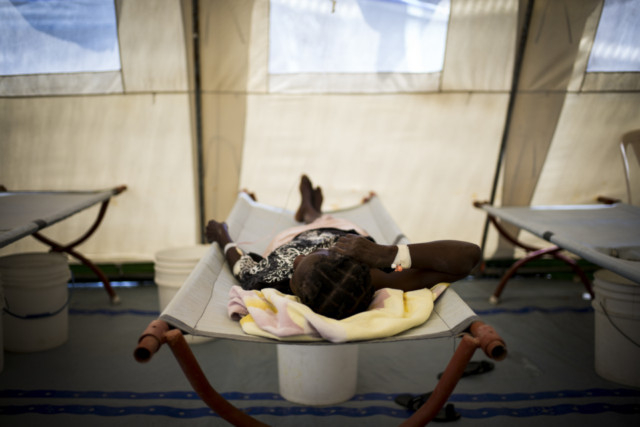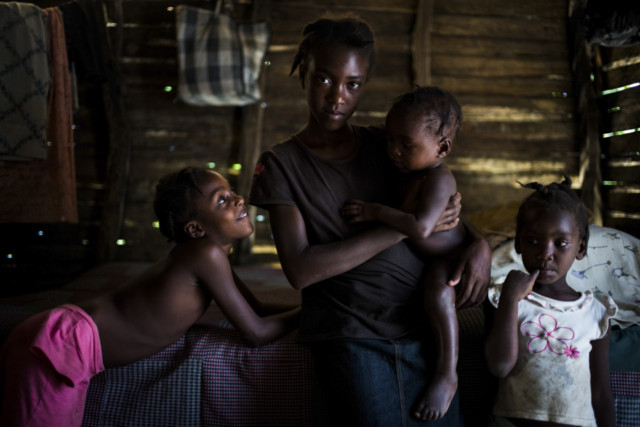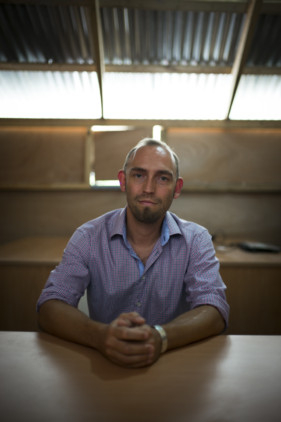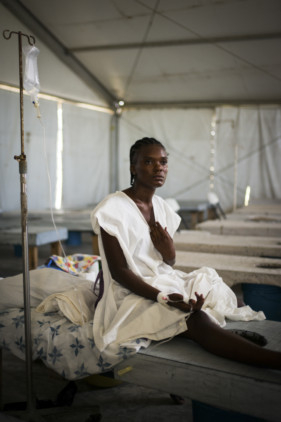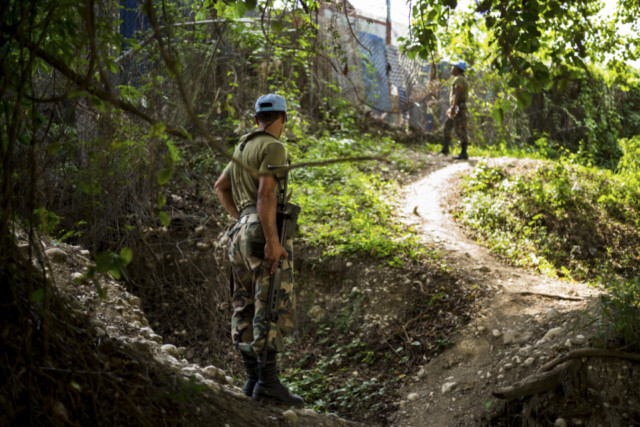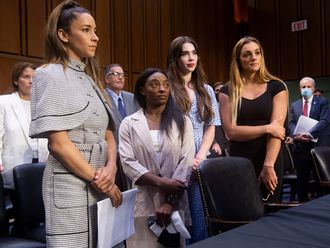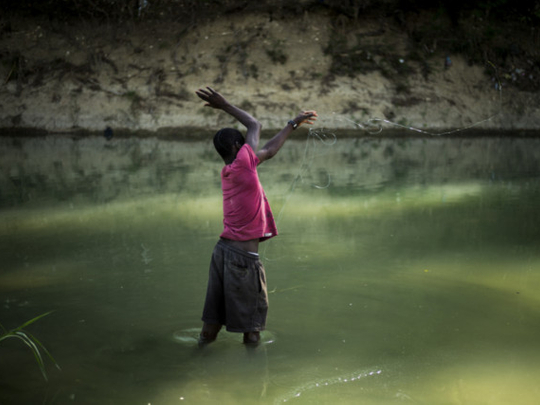
CHAPOTEAU, Haiti
For three years, the United Nations has refused to address whether its peacekeepers brought a deadly strain of cholera to Haiti, insisting instead that it was more important to help the country staunch the disease once and for all.
But on that score, it is still very far behind. In some ways, Haiti is even less equipped to tackle cholera than it was three years ago.
The United Nations raised barely a fourth of the $38 million (Dh139 million) it needed last year to provide lifesaving supplies, including the most basic, like water purification tablets. Clinics have run short of oral rehydration salts to treat the debilitating diarrhoea that accompanies the disease. Some treatment centres in the countryside have shut down as the aid groups that ran them have moved on to other crises. And a growing share of patients are dying after they finally reach hospitals, according to the United Nations’ own assessments.
Josilia Fils-Aime, 11, who lives in this village on an isolated spit of land near the Artibonite River, where the epidemic first began, knows these shortcomings all too well. Her family had run out of water purification tablets, and she drank water from what must have been a polluted stream nearby.
“I felt dizzy and sick,” the girl said.
She was struck by sudden vomiting and diarrhoea. Doctors diagnosed cholera. Her predicament has multiplied across Haiti, which has had the most cholera cases in the world for three years in a row.
Short of aid
The United Nations has yet to raise the $5 million necessary to vaccinate 600,000 vulnerable people right away — as the rainy season approaches and the threat of waterborne illnesses like cholera looms — let alone the $2 billion that it promised to raise from rich countries to build Haiti’s water and sanitation infrastructure, which public health experts say is vital to ridding the country of cholera.
Pedro Medrano Rojas, the UN secretary-general’s newly appointed envoy for the cholera outbreak, attributed the shortfall to global “donor fatigue” in the face of other humanitarian crises.
“Had we had the resources it would have been different,” Medrano said. “It’s not expensive. No one should be dying from cholera.”
Since the outbreak began in October 2010, 8,562 people in Haiti have died of cholera. New infections have declined, following the typical trajectory of an epidemic, from a peak of more than 350,000 reported cases in 2011 to a little more than 50,000 cases in 2013.
“In any other country, you would declare it a humanitarian disaster,” said Dr. Louise Ivers, a health-policy adviser for Partners in Health. “What’s going to happen when the rainy season starts?” By Medrano’s estimates, as many as 40,000 people could become infected once the clouds break and the rivers swell. Haiti’s cholera outbreak has spread to three countries across the region: the Dominican Republic, Cuba and Mexico. The fatality rates have been much lower in those countries, which have far better public health systems; it is a measure of how easy it can be to treat the disease.
Forensic studies, including one ordered by the United Nations, have concluded that the bacteria found in Haiti is an Asian strain common in Nepal, where hundreds of UN peacekeepers in Haiti came from. The forensic studies have also linked the spread of cholera to a flawed sanitation system at the Nepalese peacekeeper base, which contaminated a river tributary that many Haitians used for drinking and bathing water.
The wastewater from the peacekeeping base, now occupied by Uruguayans, still flows into that stream, though the United Nations insists it is now treated.
Explanation sought
The United Nations has maintained a steely silence about whether it is responsible for importing the disease to Haiti, where cholera had not been previously recorded.
In a stinging report in March, Gustavo Gallon, a special envoy for human rights in Haiti, took the United Nations to task for its failure to explain how the disease had spread to Haiti and who was responsible. He urged the United Nations to establish a commission “to enable damages to be recorded, corresponding benefits or compensation to be paid, the persons responsible to be identified, the epidemic to be stopped and other measures to be implemented.”
Three class-action lawsuits have been filed against the United Nations in US courts, asserting it was responsible for the outbreak.
— New York Times News Service


